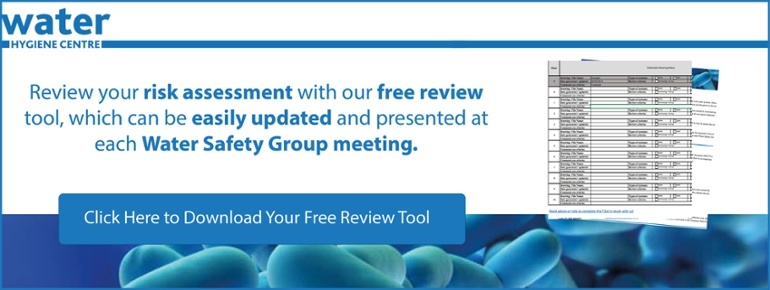There are many reasons why a Legionella risk assessment project may stray off course or unveil nasty surprises. Here are a few problems that may arise during a project along with potential solutions:
| Problem | Solution |
| The Assessor finds additional water systems incurring extra charges and causing disruption to your budget. | Agree on the scope of works and provide an up-to-date asset list at the proposal stage of the project. This will enable the risk assessor to calculate realistic costs for the risk assessment of all systems and thereby reduce the chance of nasty surprises. |
| The assessor could not safely access parts of the water system or its components either leaving you with an incomplete risk assessment or with a bill for the return visit required to complete the job. | Did you make the assessor aware of opening times, hazardous areas, and / or specialist access requirements and training beforehand? Providing this information in advance allows the assessor to plan accordingly. |
| The risk assessment is missing a system. |
Did you provide an up to date asset list? An assessor is much less likely to miss a system they are told about. Was a site chaperone available? The local knowledge of someone who is familiar with the site and water systems is not only a benefit to the assessor but also guards against an incomplete assessment. |
| The risk assessor recorded that a record was missing but they didn't ask to see it. | The type and location of documentation and records should be discussed and agreed before the project begins. The records requested should then be made available during the assessment project. |
| The assessor has asked for money to complete the job. |
Is there an agreed project plan? Were deliverables agreed and correctly costed for? Avoid scope creep, if you ask for something extra that was not costed for, expect an inconvenient extra bill at the end of the project. |
Most of these issues can be avoided with an agreed project plan, scope of work, and terms of reference.
BS8580-1:2019
“BS8580-1:2019 Water Quality – Risk assessments for Legionella control – Code of practice” recommends a list of items to agree on before work commences. Regarding access it states:
“The scope of the risk assessment, including identifying the systems that are to be assessed and those that are not to be assessed, taking into account the asset register, any schematic diagrams, and documentation on operation and maintenance. This is important as certain aspects of the risk assessment could require specialist knowledge or equipment (including PPE) to which the assessor would require access.”
If the Responsible Person is unaware of access to every asset, a clause can be written into the project plan regarding extension/change to the scope with adequate reimbursement.
Some costings are submitted without the availability of all information i.e. a tender, which can be written without full input from the person with the knowledge of site assets. In this instance, an agreement can be made and costs can be changed as new information is gained after tender award.
It is in both party’s interest for the project to run on time and within budget. Without agreeing on the specific terms of reference before a project starts, however, this can be difficult to achieve in an industry that is becoming more and more tender-based.
Further reading> Legionella Risk Assessments at the commissioning stage
Feel free to reach out if you have any questions about the issues mentioned above or if you would like to consult with one of our experts on water hygiene.
Editors Note: The information provided in this blog is correct at date of original publication - January 2020.
© Water Hygiene Centre 2020









